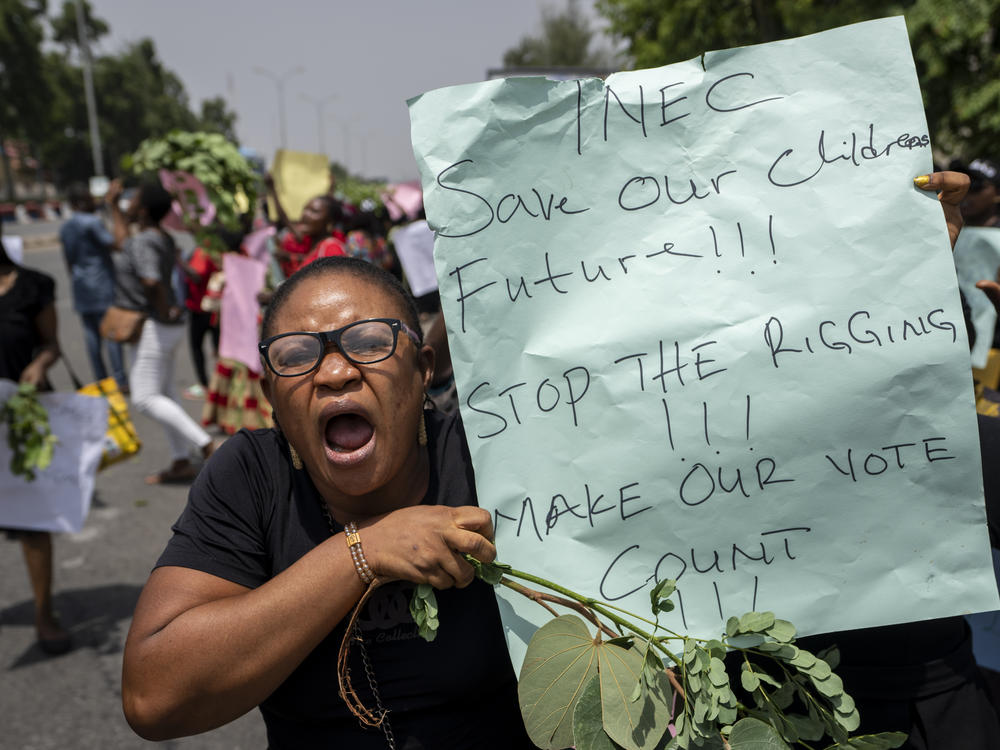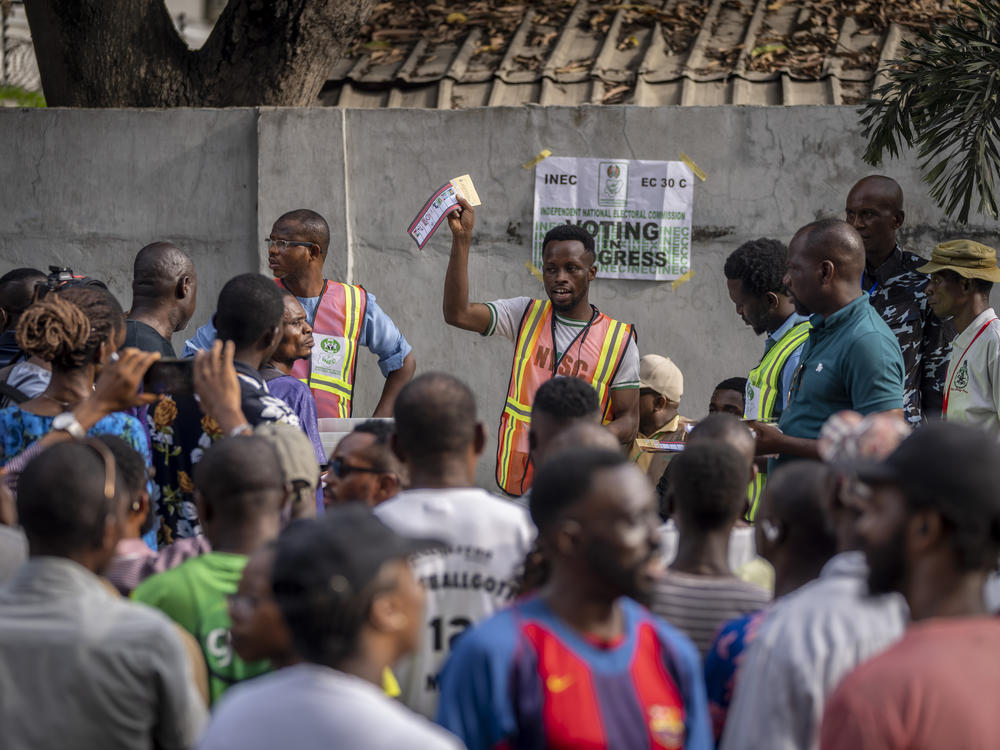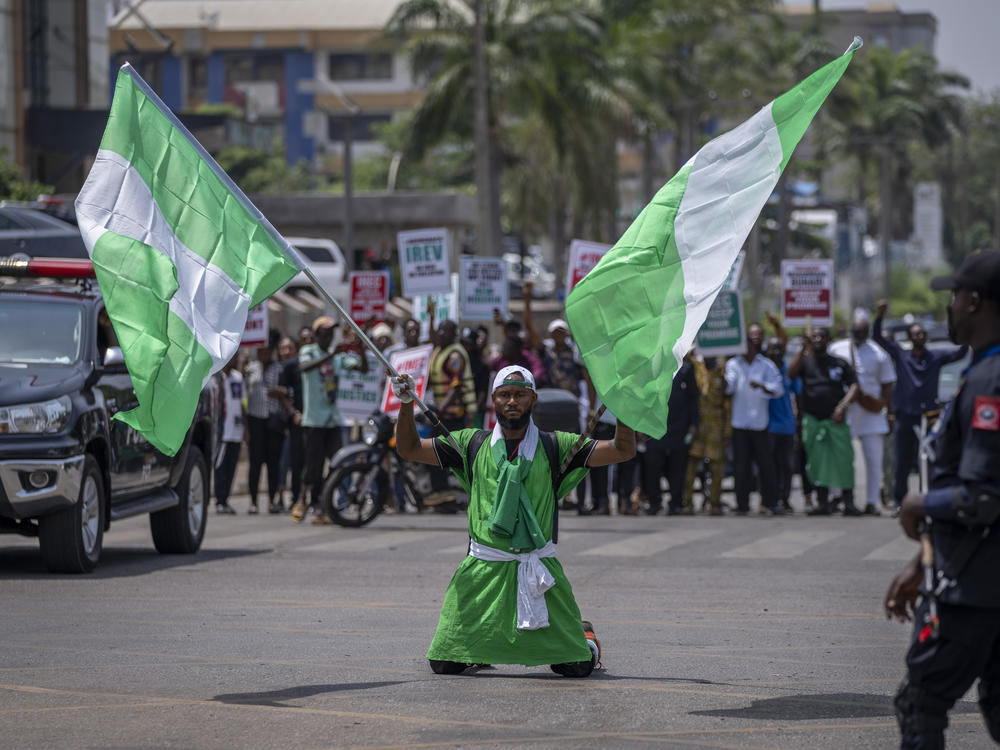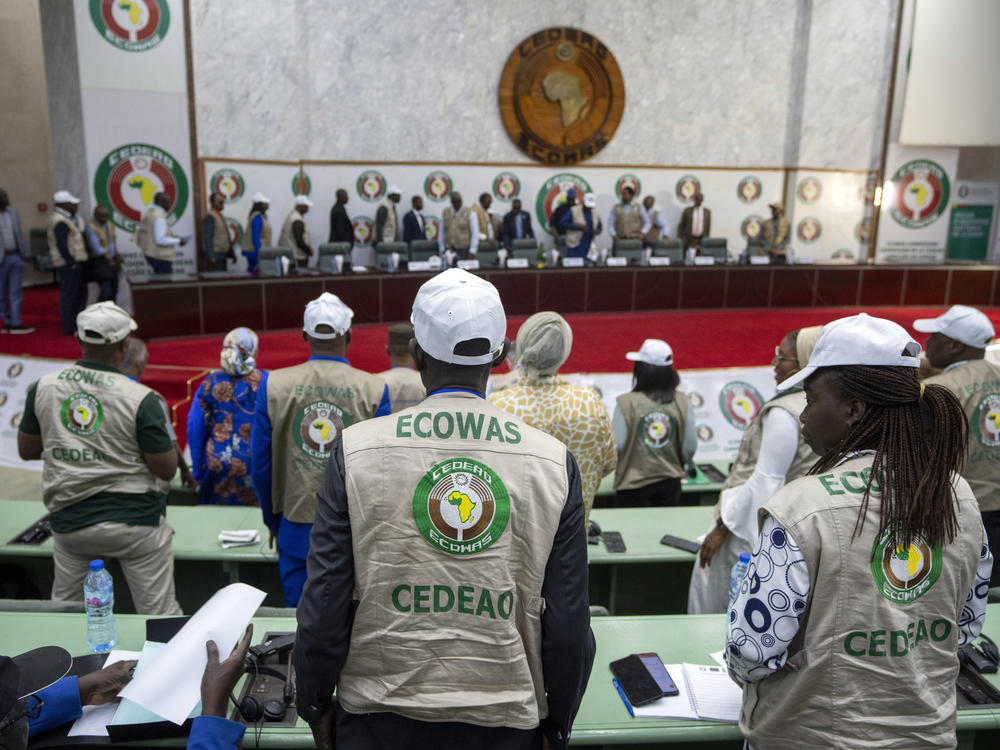Section Branding
Header Content
Nigeria's opposition parties call elections a 'sham' and demand a new vote
Primary Content
ABUJA, Nigeria — The main Nigerian opposition parties are calling for a rerun of the country's presidential election, saying Saturday's vote was marred by violence and rigging and that they've lost any confidence in electoral authorities.
Election observers reported widespread failings by the electoral commission and a long delay of the results, fueling mistrust in the process. While voting went undisturbed in some areas, several polling centers across the country opened hours late, and in some areas voting had still not occurred as of Tuesday. Violent attacks and voter intimidation also marred the polls in some areas and disenfranchised voters.
The race in Africa's most populous country was one of the hardest to predict and most tightly fought in years, with three prominent candidates. It came at a vital moment for the country, following eight bleak years in which the economy has suffered and insecurity has become rife under outgoing President Muhammadu Buhari.
Buhari's All Progressives Congress (APC) party's candidate, Bola Ahmed Tinubu, is currently in the lead with 39%, according to preliminary results with votes still being counted. The People's Democratic Party (PDP) candidate Atiku Abubakar is second and Peter Obi of the Labour Party is third.
At a news conference in the capital Abuja on Tuesday, representatives from the PDP, Labour and the African Democratic Congress (ADC) were scathing about the election.
The parties said they have no faith in the electoral process or the Independent National Electoral Commission (INEC) and called for the removal of its chairperson.
"The process was irretrievably compromised and we've lost faith in the entire process," said Julius Abure, chairman of the Labour Party. "We demand that this sham of an election should be immediately canceled and new elections should be announced."
They alleged there was large-scale manipulation of votes and that a new electronic system designed to strengthen and speed up the voting process was compromised. They also alleged that photo evidence of vote counts, uploaded from each polling unit by local INEC officials, had irregularities.
According to Africa Check, a fact-checking news site, some of the results uploaded to INEC were backed up by the wrong evidence from entirely different polling units.
On Tuesday, INEC chair Mahmood Yakubu said, "Let me seize this opportunity to assure Nigerians that we'll do whatever we can within the law to review issues arising about the conduct of elections. To review where review is absolutely necessary."
The Bimodal Voter Accreditation System (BVAS) used during the presidential polls for the first time was hailed by the electoral commission as an improved method to verify voters, using facial recognition and biometric data, and a faster way for electoral officials to post the results. INEC had promised to upload votes directly from each polling unit to its website and that it would boost the credibility of the results.
But many results were not uploaded for close to a day after polls closed. Opposition parties alleged the delay was due to political pressure on local INEC officials to falsify results.
The governing APC has said the polls were credible and declared its candidate the likely winner.
Election monitors from the European Union said in a statement, a "lack of transparency and operational failures reduced trust in the process and challenged the right to vote."
On Sunday, INEC said it regretted "technical hitches" it blamed for the slow pace of results uploaded to its viewing portal and said it was not due to any "intrusion or sabotage."
Incidents of violence, ballot box snatching and voter intimidation also greatly affected the vote in a number of areas, including Lagos, the commercial capital, the central state of Kogi and the southern oil rich state of Rivers.
In Lagos, NPR witnessed masked gunmen fire at a polling station and take away a ballot box. It was not completely clear who the assailants were, but many people at the station told NPR they were voting for Peter Obi, and some voters said they felt intimidated by unknown figures around the unit.
Some observers said logistical failures from INEC and violence likely suppressed the vote in areas.
Many people including large numbers of young and first-time voters were galvanized by Obi, a third-party candidate whom polls had predicted to win.
After about 75% of results were announced by INEC, Obi is currently trailing with 23% of the vote. But the Labour candidate has registered major victories in several states, including Lagos, overturning a key stronghold of rival Tinubu, a former two-term governor of the state with ruling APC party.
The vote count continued Tuesday and a winner could be announced within a few days. Yet the disputes will likely mean the results are challenged in court.
Copyright 2023 NPR. To see more, visit https://www.npr.org.




